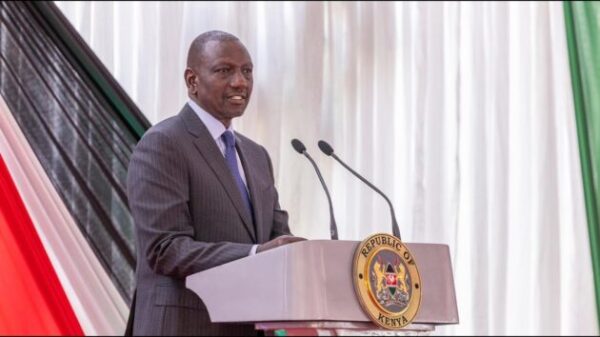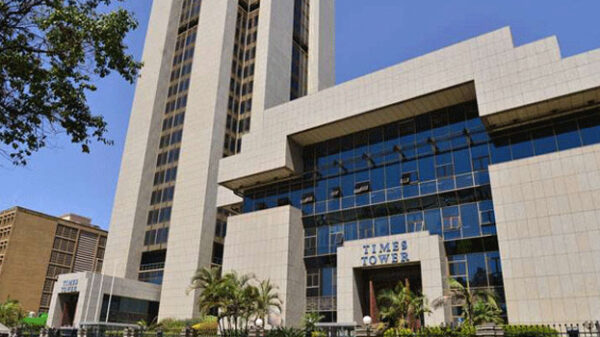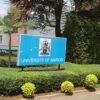By Sam Gitau. R
JULY 7 – The entrenched patterns of war and systemic failure in the Horn of Africa have met their most direct retort in a fresh, first-of-its kind, leadership development program, which seeks to identify and address the causes of the never-ending instability in the region. A select group of 25 young leaders across IGAD member states have undergone intensive trainings aimed at shattering the so-called “forever wars” in the region, as Ambassador Guyo, a facilitator put it; warring systems developed to ensure that institutional failure and social disenfranchisement persists.
The magnitude of the leadership problem of the Horn cannot be overemphasized. The ongoing fight in Sudan between opposing forces in the army has brought millions out of their homes and devastated an already vulnerable country.
Somalia is still fighting decades-old conflicts and is trying to restore some rudimentary systems of governance. The youngest country in the world, South Sudan is ridden by inner discord, and this has affected any significant development since independence. Additionally, Ethiopia is subject to ethnic tensions, which destabilize its sovereign national unity. As if that’s not enough, the problem of drought and climate change, exacerbate the prevailing vulnerability in almost all IGAD member states.
“We acknowledge that due to its dynamic nature and the fact that it has attracted interests of Continental and Global geopolitical players, the region needs to invest on the quality of leadership it has,” noted the Academy’s director Dr Simon Nyambura during the training, identifying the fundamental challenge that traditional approaches have failed to address. The conflicts of the region cannot be argued as political disagreements alone, rather, they are structural failures of leadership capacity which produce what he termed as organic crises of state failure, development failure, and leadership failure.
The four-day intensive training program that ended early last week, however, can be considered as an entirely different way of approach to these aggrieved challenges. Rather than just offering conflict resolution or economic development, the IGAD Leadership Academy addresses the underlying problem: decades of leadership deficit that defines the hallmark of the region. The philosophy of the academy acknowledges that being in a position to promote sustainable peace and development needs leaders not only endowed with outstanding technical skills but leaders who are also emotionally intelligent, morally sound and have the capability to maneuver within varied multicultural contexts.
The cohort participants themselves represented the potential of the region that remains unexplored as they displayed advanced knowledge of interdependent issues. The Ethiopian representatives were able to build on inclusive youth empowerment measures by acknowledging that youth in marginalized communities tend to become open targets to radical cadres or criminal gangs. Somali representatives developed specific plans on how to prevent sexual violence using the avenues of cultural amendment, as well as changes in justice mechanisms, recognizing the negative effects of gender-based violence on social cohesion and multi-generational cycles of traumas. Most notably perhaps, Sudanese interface members developed peace and development capacity-building programs albeit in the midst of an active conflict in their country something that was noted as exceptionally resilient and strategic. Their attention to harmonizing the voices of the youth to fight hate speech and create networks of sharing knowledge shows profound knowledge of how social fragmentation facilitates political manipulation and violence.
The leadership crisis is not confined to war regions but spread to political difficulties within all member states. Kenyan respondents discussed gender inequality in political leadership, acknowledging how the failure to include women in the process of decision-making restricts the effectiveness of policies and democratic legitimacy. Ugandan representatives worked to create digital platforms to engage youth in civic activities, learning how innovative technology can open new opportunities to participate in political life in situations where the existing system is closed and traditional.
The idea of the forever wars that Ambassador Guyo talked about has resonance in that it describes the way regional conflicts have now developed into self-regenerating mechanisms of power that helps serve small elites and ruins large populations. The presence of these conflicts avails strategic vacuums that no longer offer any chance of resolution but open illegal avenues of economic gain to the arms dealers, smugglers, and corrupt officials who thrive on this form of unstable economy. It takes leaders who are familiar with the local dynamics as well as global implications, and perhaps most importantly leaders who are willing to be focused on collective improvement to break these cycles.
To resolve this complexity, the academy’s curriculum comprehensively examined accountability, transformative governance, gender-responsive leadership, and strategic communication. Participants interacted with real systems of institution creation, social norm reshaping, and pathways to sustainable development based on a focus on causes, not symptom containment.
The heterogeneity of the country action plans shows how regionally-specific issues need locally-sensitive solutions, albeit under a broader coordination. Djiboutian participants were also concerned with civic engagement and democratic participation, noting how apathy and marginalization allow authoritarian tendencies to thrive. South Sudanese representatives stressed the unification of their country and cross-communal dialogue, realizing how divisions based on identity have been twisted to sustain power and inhibit sound governance.
The establishment of mentorship programs, alumni networks, and follow-up mechanisms ensures this initial training catalyzes sustained transformation rather than remaining an isolated intervention. Monthly virtual sessions, annual conferences, and cross-border collaboration initiatives create frameworks for ongoing development while building institutional memory that benefits future cohorts.
Attributable to the success of the academy in producing leaders of analytical suaveness and practical implementation ability, an investment in youth driven change could deliver transformational outcomes. With these new leaders moving into more senior roles, their ethical outlooks on governance, their understanding of the need to include everyone in the development process, and their ability to work cooperatively in tackling problems all offer real hope to ending the conflict cycles and lack of development that has dominated the Horn of Africa region far too long.
That future of the region hinges on the outcome of whether this investment in transformative leadership development would be able to expand, to reach the necessary critical mass of prepared leaders who are interested in working toward sustainable peace and flourishing.
The Author is a Researcher on Policy and International Development
































